DryGair Is Saving Energy and Improving Yields Across N. American Horticulture
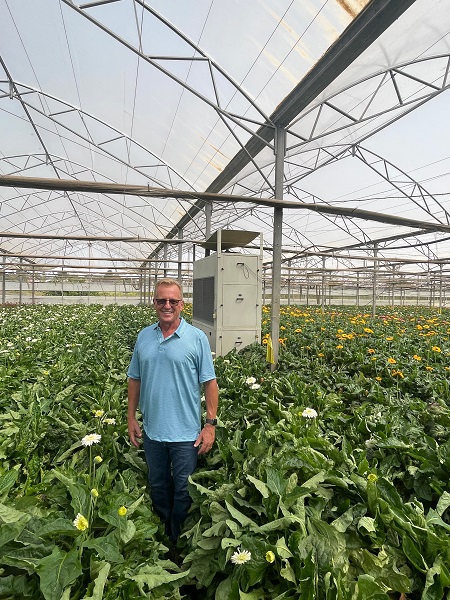 Dehumidification system manufacturer, DryGair (Indoor Ag-Con Booth 207), has been at the forefront of the horticulture humidity control market since its inception in 2010. The company has recently established its N. America branch, in order to better serve the U.S. and Canadian markets, as the system is becoming more and more popular, in a wider variety of crops.
Dehumidification system manufacturer, DryGair (Indoor Ag-Con Booth 207), has been at the forefront of the horticulture humidity control market since its inception in 2010. The company has recently established its N. America branch, in order to better serve the U.S. and Canadian markets, as the system is becoming more and more popular, in a wider variety of crops.
Director of the N. America branch, Douglas Miller, mentions DryGair’s success in Europe, most notably in the Netherlands.
“Growers in Europe have been using DryGair for a long time, in a variety of different crops and facilities. It’s become a staple, especially in flowers and other ornamental plants, as well as herbs, leafy greens, and many types of vegetable and vine crops.”
Growers Use DryGair for a Variety of Benefits
The patented dehumidification system was developed at the Volcani Agricultural Research Center, as one of the first solutions for active humidity reduction in horticultural environments. Advanced greenhouses were quick to adopt the technology, as it was shown to not only prevent diseases and improve yields, but also save a significant amount of energy.
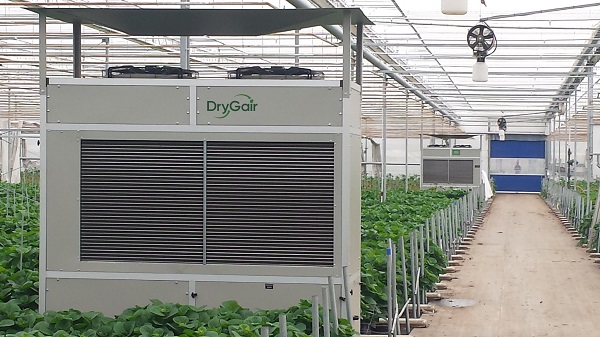 “When people think of dehumidification, they think of mold prevention”, Miller says. “But it’s much more than that. Maintaining an ideal relative humidity range, coupled with a uniform climate (thanks to DryGair’s patented air circulation mechanism), has a major impact on the crop. It creates an active climate that stimulates growth and improves quality.”
“When people think of dehumidification, they think of mold prevention”, Miller says. “But it’s much more than that. Maintaining an ideal relative humidity range, coupled with a uniform climate (thanks to DryGair’s patented air circulation mechanism), has a major impact on the crop. It creates an active climate that stimulates growth and improves quality.”
“The system also saves a lot of energy. By making ventilation unnecessary, you can retain heat inside, which significantly reduces heating requirements. We’ve seen an average of 50% savings, compared to traditional humidity control methods, in trials and customer experiences.”
DryGair’s Success in the Cannabis Sector
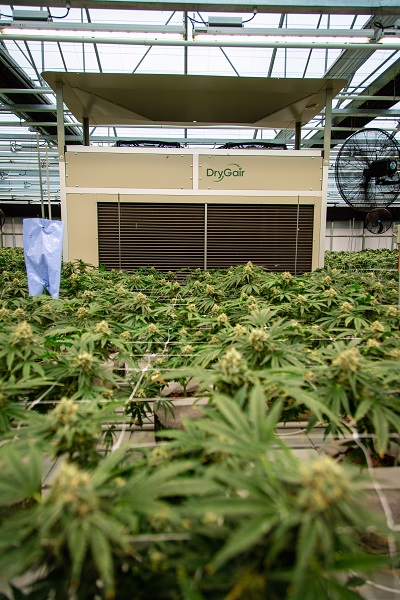 In contrast to the European markets, in the U.S. and Canada, DryGair was mostly popularized in cannabis production.
In contrast to the European markets, in the U.S. and Canada, DryGair was mostly popularized in cannabis production.
“We’ve had a lot of success in commercial and medical cannabis production in the U.S. and Canada. Cannabis growers were early adopters, quickly realizing that effective humidity control can make or break entire grow cycles” Miller mentions.
“Of course, when it comes to cannabis, humidity control is extremely important, as it’s the main tool for mold prevention. It’s necessary in all stages of cultivation and is actually a GMP requirement for medicinal cannabis production.”
Popularizing Dehumidification in Vegetable and Flower Cultivation
“However, more and more ‘traditional’ growers have been taking note.” Miller adds. “Vegetable, flower, and potted plant growers are realizing the benefits their counterparts across the world are reaping.”
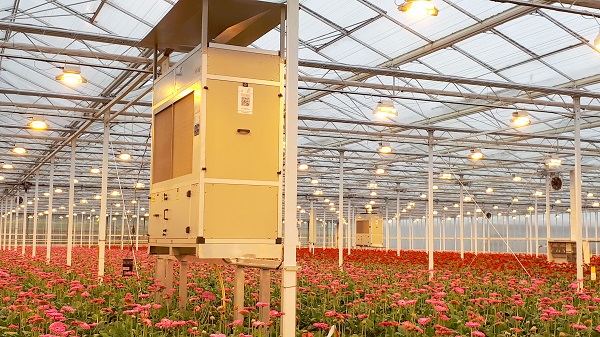 Once growers understand that this tool can both improve yields and reduce costs, it’s an easy decision,” he adds.
Once growers understand that this tool can both improve yields and reduce costs, it’s an easy decision,” he adds.
DryGair will be presenting their humidity control solution at the upcoming Indoor Ag-Con. Visit the company at booth #207 to discuss effective humidity control and energy savings possibilities for your facility.
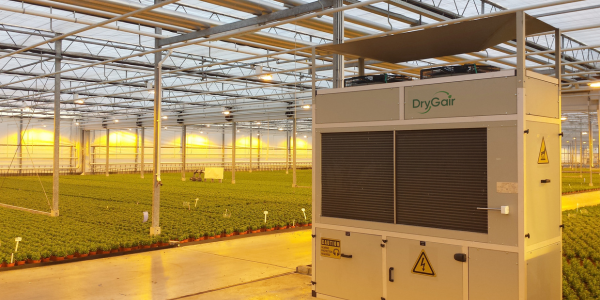
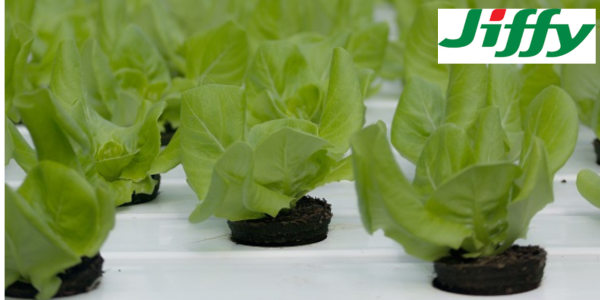
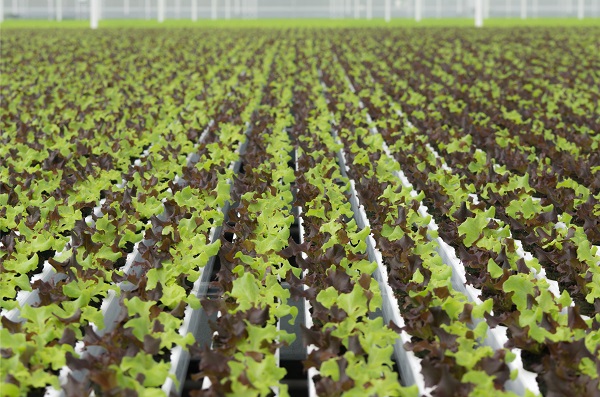

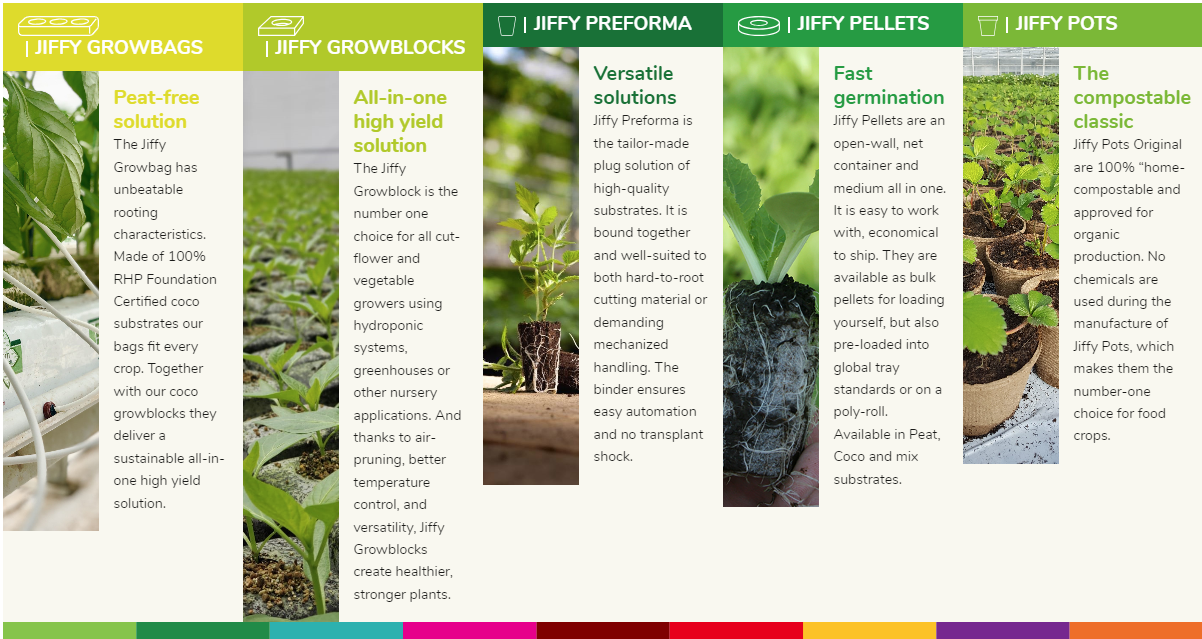
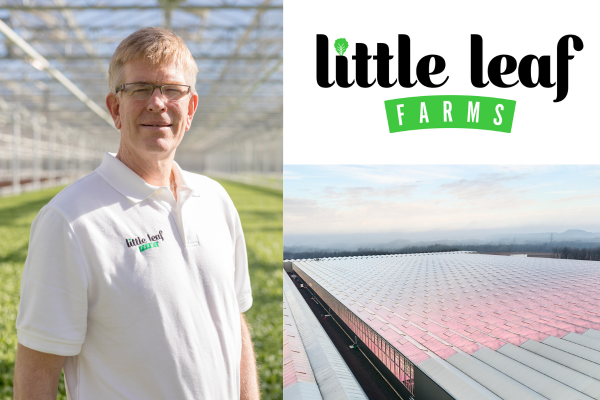
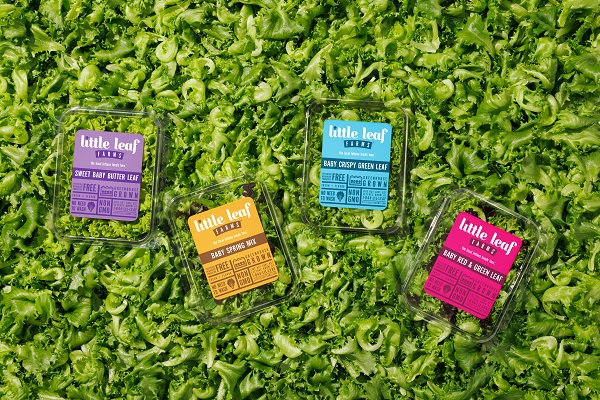
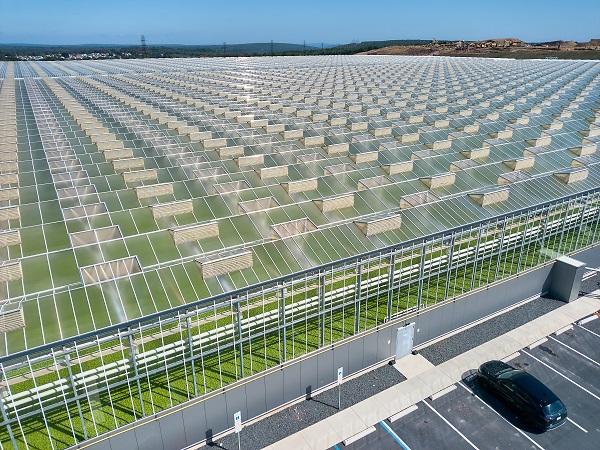 Every step of our growing process was designed to limit our impact on the planet. For example, we utilize captured rainwater in our soil-less farming, which results in 90% less water usage than field-grown greens. Plus our greenhouse locations are in regions with high natural precipitation and not dependent on groundwater as the west coast growers do. . Our Devens, MA greenhouse gets 45 inches of rain per year alone and we use all of it, whereas Salinas, California sees only 10 inches of rain per year.
Every step of our growing process was designed to limit our impact on the planet. For example, we utilize captured rainwater in our soil-less farming, which results in 90% less water usage than field-grown greens. Plus our greenhouse locations are in regions with high natural precipitation and not dependent on groundwater as the west coast growers do. . Our Devens, MA greenhouse gets 45 inches of rain per year alone and we use all of it, whereas Salinas, California sees only 10 inches of rain per year.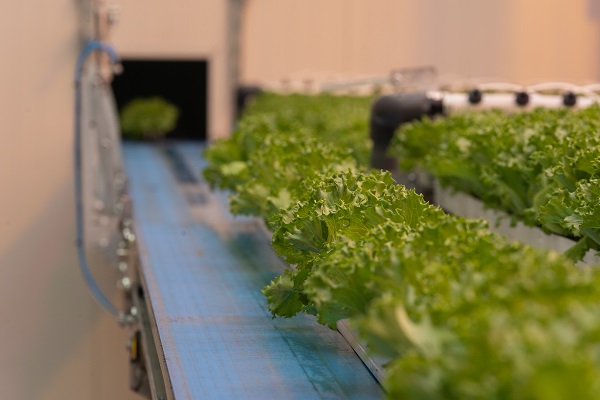 We have always approached growing lettuce as a farming company, rather than a tech company. While we are technologists and our technology is cutting-edge, our priority is growing sustainable, local lettuce that most importantly, tastes great. Our lettuce arrives on grocery store shelves within 24 hours of harvesting, spending less time traveling than most other lettuces. This, in addition to our highly automated system and sustainable growing practices, results in fresh, flavorful leafy greens that remain crispy a remarkably long time after purchase. At the end of the day, we’re growing food. People want to buy and eat what tastes good, and our amazing taste is what’s going to continue to be the differentiator for us. We’ve also grown our business in a way that gives us the ability to scale profitably and better service our retailers, which is going to continue to put us in a position to challenge and compete with field-grown brands as we enter new markets. We’ve surpassed field-grown greens in New England and I’m confident we can replicate that success in other markets across the country as we grow.
We have always approached growing lettuce as a farming company, rather than a tech company. While we are technologists and our technology is cutting-edge, our priority is growing sustainable, local lettuce that most importantly, tastes great. Our lettuce arrives on grocery store shelves within 24 hours of harvesting, spending less time traveling than most other lettuces. This, in addition to our highly automated system and sustainable growing practices, results in fresh, flavorful leafy greens that remain crispy a remarkably long time after purchase. At the end of the day, we’re growing food. People want to buy and eat what tastes good, and our amazing taste is what’s going to continue to be the differentiator for us. We’ve also grown our business in a way that gives us the ability to scale profitably and better service our retailers, which is going to continue to put us in a position to challenge and compete with field-grown brands as we enter new markets. We’ve surpassed field-grown greens in New England and I’m confident we can replicate that success in other markets across the country as we grow.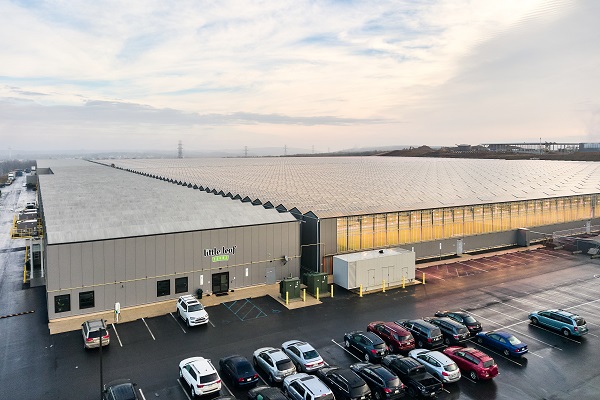 Our business is about farming, and we consider farming a people-based business that puts the crop first. This mindset enables us to recruit the best team of growers, R&D staff, operations staff, and more to carry out our mission of growing fresh leafy greens for all. The farmer-first mindset also reinforces our commitment to growing a product that tastes great and that people actually want to eat, which ties directly to our mission of bringing fresh, leafy greens for all.
Our business is about farming, and we consider farming a people-based business that puts the crop first. This mindset enables us to recruit the best team of growers, R&D staff, operations staff, and more to carry out our mission of growing fresh leafy greens for all. The farmer-first mindset also reinforces our commitment to growing a product that tastes great and that people actually want to eat, which ties directly to our mission of bringing fresh, leafy greens for all.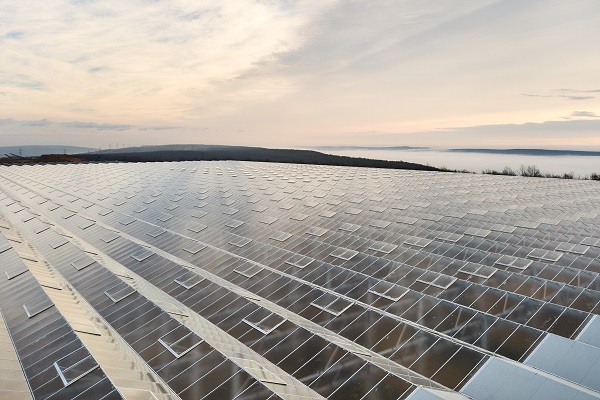 We’ve also expanded our product line to now offer salad kits made with our signature Baby Crispy Green Leaf lettuce, which had an initial launch in the Northeast this fall but will be expanding to our full distribution footprint in January 2024.
We’ve also expanded our product line to now offer salad kits made with our signature Baby Crispy Green Leaf lettuce, which had an initial launch in the Northeast this fall but will be expanding to our full distribution footprint in January 2024.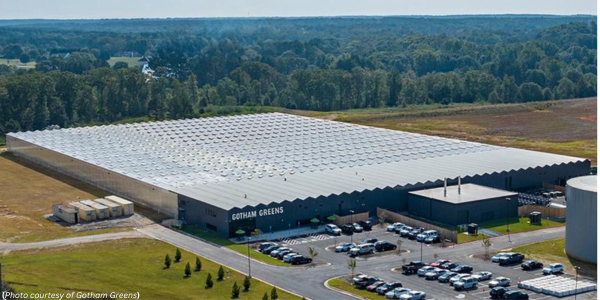
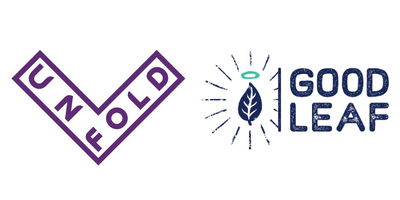
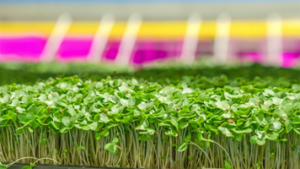
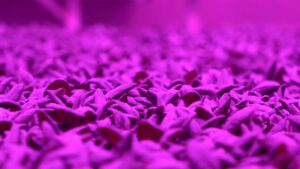
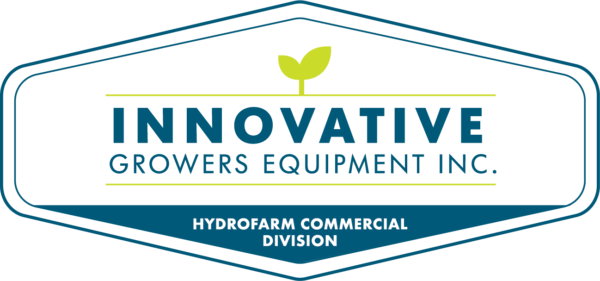
 As more consumers take an interest in the origin and sustainability of their food, they seek out agricultural companies dedicated to responsible and socially sustainable farming.
As more consumers take an interest in the origin and sustainability of their food, they seek out agricultural companies dedicated to responsible and socially sustainable farming. 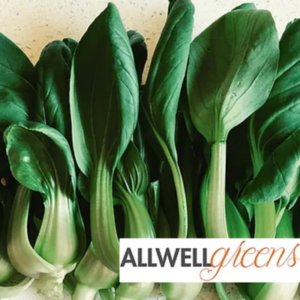 AllWell Greens is that company. Founded in New York by second-generation Taiwanese Americans, AllWell Greens specializes in growing heritage bok choy, Chinese broccoli, and other traditional Asian greens. The founders of AllWell Greens, spurred by their frustration with issues they experienced using traditional farming methods, spent two years researching, developing and testing farming methods in a 200 square foot indoor facility in downtown Manhattan.
AllWell Greens is that company. Founded in New York by second-generation Taiwanese Americans, AllWell Greens specializes in growing heritage bok choy, Chinese broccoli, and other traditional Asian greens. The founders of AllWell Greens, spurred by their frustration with issues they experienced using traditional farming methods, spent two years researching, developing and testing farming methods in a 200 square foot indoor facility in downtown Manhattan.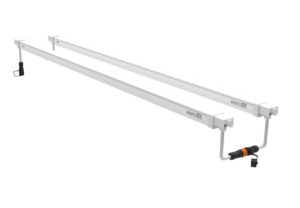 IGE-Hydrofarm Commercial Division offers a modular, high-efficiency LED lighting system designed for propagation and vegetative stages, especially for vertical grows. After four separate lighting trials, the AllWell Greens’ founders were thrilled with the results of the PHOTOBIO horticulture lights. Their greens were crisp, flavorful, and disease-free, and they were able to harvest two days faster than in any previous trial!
IGE-Hydrofarm Commercial Division offers a modular, high-efficiency LED lighting system designed for propagation and vegetative stages, especially for vertical grows. After four separate lighting trials, the AllWell Greens’ founders were thrilled with the results of the PHOTOBIO horticulture lights. Their greens were crisp, flavorful, and disease-free, and they were able to harvest two days faster than in any previous trial! 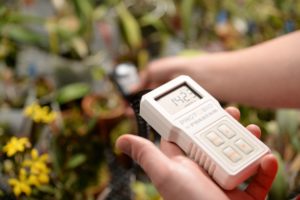 The PHOTOBIO lights are a game-changer for AllWell Greens. “We always knew that light was an important factor in growing greens, but I don’t think we anticipated the impact it would have on grow time and ultimately profitability,” explains John Cari, one of the company’s founders. “The PHOTOBIO lighting is so precise that we reduced our grow time by two days, improved our yields and significantly reduced our energy costs.”
The PHOTOBIO lights are a game-changer for AllWell Greens. “We always knew that light was an important factor in growing greens, but I don’t think we anticipated the impact it would have on grow time and ultimately profitability,” explains John Cari, one of the company’s founders. “The PHOTOBIO lighting is so precise that we reduced our grow time by two days, improved our yields and significantly reduced our energy costs.”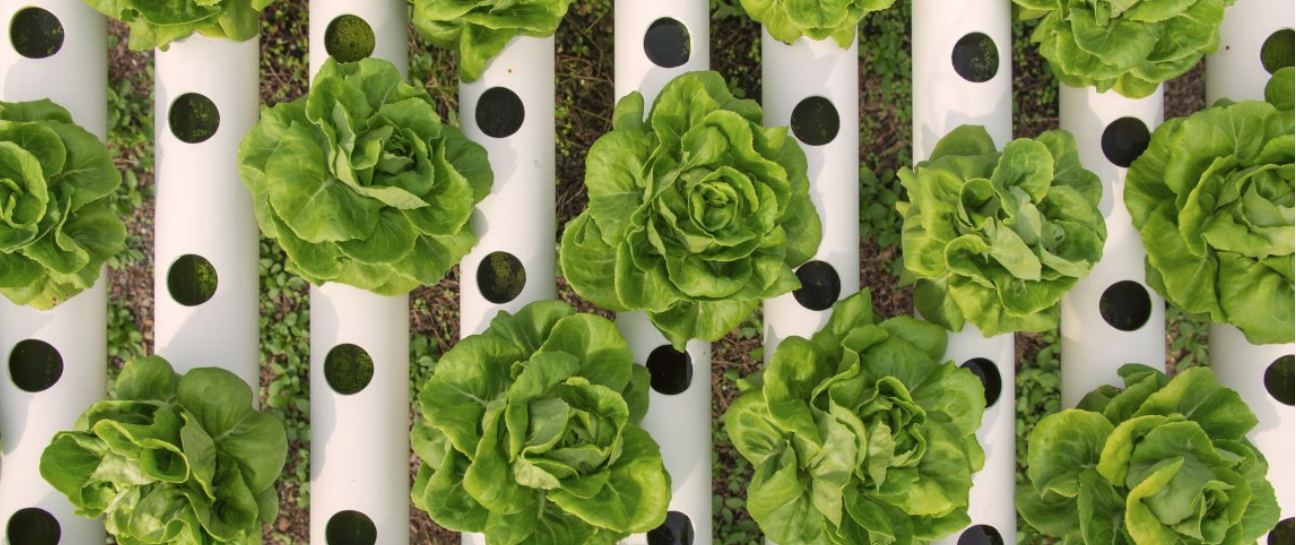
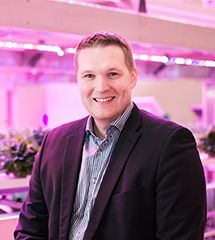
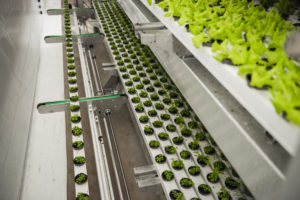 Size does matter, and the size of the market for salad and leafy greens in the U.S. and Canada is approximately $15 billion and growing. And it will continue to grow with an estimated CAGR
Size does matter, and the size of the market for salad and leafy greens in the U.S. and Canada is approximately $15 billion and growing. And it will continue to grow with an estimated CAGR 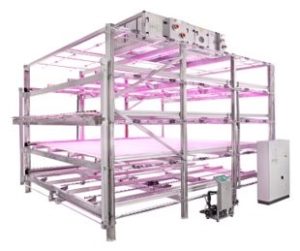 The COVID pandemic has shown us that the logistics involved in food transportation are extremely susceptible to disruption; perishable products in particular cannot be stored for long before the quality deteriorates to such an extent that they are no longer fit for sale.
The COVID pandemic has shown us that the logistics involved in food transportation are extremely susceptible to disruption; perishable products in particular cannot be stored for long before the quality deteriorates to such an extent that they are no longer fit for sale.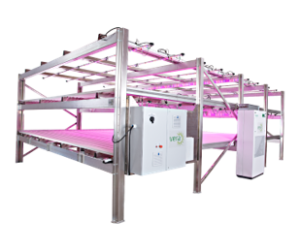 The more stages there are in the food processing and distribution, the higher the chance of some form of contamination.
The more stages there are in the food processing and distribution, the higher the chance of some form of contamination.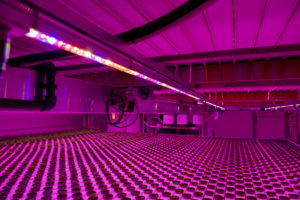 All this automation not only ensures the minimum possible amount of contamination, but it also reduces labor costs.
All this automation not only ensures the minimum possible amount of contamination, but it also reduces labor costs.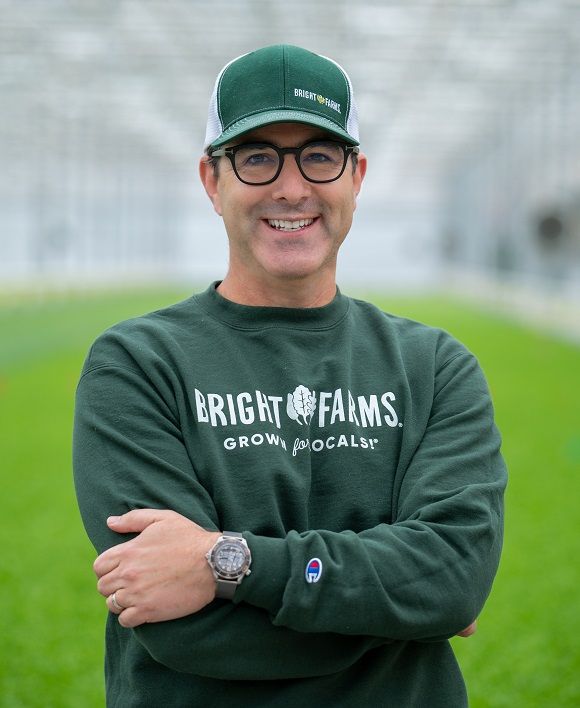
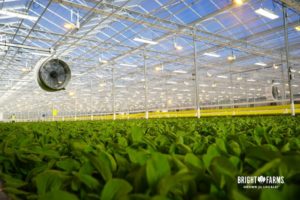
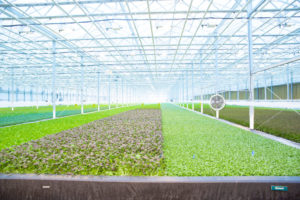
 Sensei Ag CEO Sonia Lo will lead the Indoor Ag-Con keynote presentation, “Improving Human Wellness One Farm At A Time,” on Monday, October 4, 2021 from 11:30 am – 12:20 pm. A headliner event at the October 4-5, 2021 edition at the Hilton Orlando, Lo’s discussion will focus on Sensei Ag’s form factor agnostic approach to building and expanding indoor farms.
Sensei Ag CEO Sonia Lo will lead the Indoor Ag-Con keynote presentation, “Improving Human Wellness One Farm At A Time,” on Monday, October 4, 2021 from 11:30 am – 12:20 pm. A headliner event at the October 4-5, 2021 edition at the Hilton Orlando, Lo’s discussion will focus on Sensei Ag’s form factor agnostic approach to building and expanding indoor farms.
 Being form factor agnostic is core to Sensei Ag’s business model and growth plan. We are indoor growers – not just greenhouse growers, not just vertical farm growers. With that said, it’s not just about the types of leafy greens and other produce we will be able to grow using different form factors, but also the ability to venture into new regions of the globe, areas that were traditionally considered food deserts but through one form factor or another can now become food oases.
Being form factor agnostic is core to Sensei Ag’s business model and growth plan. We are indoor growers – not just greenhouse growers, not just vertical farm growers. With that said, it’s not just about the types of leafy greens and other produce we will be able to grow using different form factors, but also the ability to venture into new regions of the globe, areas that were traditionally considered food deserts but through one form factor or another can now become food oases. myself down the line. That said, after spending the majority of my career in finance and tech, I can truly say that I am the happiest growing local, nutritious food for others. I joined Sensei Ag last April for the once-in-a-lifetime opportunity to spearhead a company developing science focused on human wellness from food and agriculture systems. As CEO, I am very honored to lead an exceptionally talented team of professionals who together share one vision and that is to increase adoption of indoor agricultural production globally.
myself down the line. That said, after spending the majority of my career in finance and tech, I can truly say that I am the happiest growing local, nutritious food for others. I joined Sensei Ag last April for the once-in-a-lifetime opportunity to spearhead a company developing science focused on human wellness from food and agriculture systems. As CEO, I am very honored to lead an exceptionally talented team of professionals who together share one vision and that is to increase adoption of indoor agricultural production globally. Nevertheless, the journey thus far has been incredible. I’ve never been known to take the straight and narrow path. Ask anyone about the twisted, curvy roads on Lana’i. Yet, in my mind, there’s never been a more crucial time in our world’s history to address global food insecurity, to encourage and develop new means of promoting health and wellness and to heal and nourish our planet. I look forward to the adventure that lies ahead.
Nevertheless, the journey thus far has been incredible. I’ve never been known to take the straight and narrow path. Ask anyone about the twisted, curvy roads on Lana’i. Yet, in my mind, there’s never been a more crucial time in our world’s history to address global food insecurity, to encourage and develop new means of promoting health and wellness and to heal and nourish our planet. I look forward to the adventure that lies ahead.